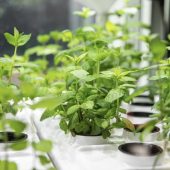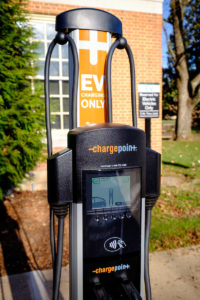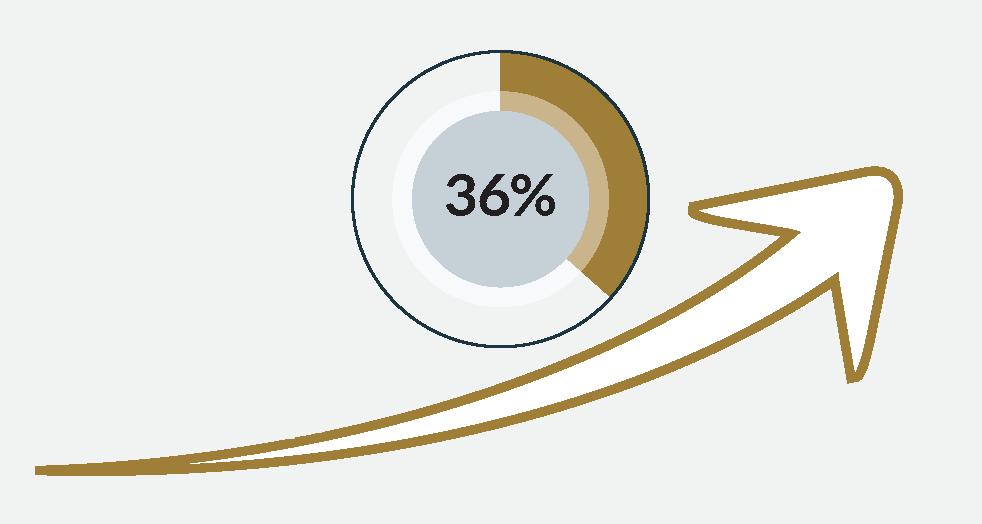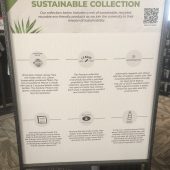The initiatives and new endeavors launched in recent years are helping streamline and improve processes across all Hospitality & Auxiliary Services departments. Through collaborations with other entities on campus, we are actively driving positive efforts in sustainability and remain committed to implementing these practices.
Dining
Our Commitments
Culinary Excellence
At Wake Forest, we believe every meal should be delicious, nutritious, and thoughtfully crafted. Our dedicated Deacon Dining culinary team, from executive chefs to front-line staff, strives for excellence in every dish, ensuring an exceptional dining experience for all.
Plant-Forward Menus
Deacon Dining recognizes the powerful impact food choices have on the environment. By placing plant-based foods at the center of our menus, we actively support climate mitigation while introducing our guests to a diverse and exciting range of flavors.
Here’s how we do it:
- “Plants First” Approach: In both dining halls and catered events, plant-based options are featured first, followed by hearty grains and smaller portions of animal-based proteins.
- Creative, Plant-Forward Recipes: Our chefs craft vibrant, flavorful dishes that highlight the variety and richness of plant-based ingredients.
- Support for Biodiversity: We source a wide selection of fruits and vegetables to promote agricultural diversity and seasonal eating.
Through these efforts, we aim to create meals that are not only better for the planet, but also create a more inclusive and flavorful dining experience for all.
Sustainable Sourcing
Deacon Dining is proud to source at least 30% of our food from vendors with trusted third-party certifications. This commitment aligns with sustainability standards set by the Association for the Advancement of Sustainability in Higher Education (AASHE) through their STARS (Sustainability Tracking, Assessment & Rating System) framework. These certifications are verified by independent organizations to ensure transparency and responsible practices in food production.
Our Most Common Certified Products:
- Murray’s Chicken: Certified Humane
- Joyce Farm’s Chicken: GAP Step 4
- Virginia Poultry Growers Cooperative: USDA Organic
- Brasstown Beef: GAP Step 4
- Joyce Beef: GAP Step 4
- Joyce Pork: Animal Welfare Approved
- Niman Ranch Pork: Certified Humane
- Sixty South Salmon: Aquaculture Stewardship Council
- J Caught Scallops: Marine Stewardship Council
- Stonyfield Yogurt: USDA Organic
- South Mountain Creamery Eggs: Certified Humane
- Tractor Beverage: USDA Organic
- Carolina Coffee: Fair Trade Certified
*our third-party certified products and partnerships change according to our needs and strategy. For a full list of our current certified products, please reach out to dining@wfu.edu
Food Waste Reduction
Minimizing food waste is one of the most effective ways to combat climate change, and at Wake Forest, it starts well before meals reach your plate.
Here’s how Deacon Dining leads the way:
- Smart Planning: We order strategically and design menus to use ingredients at their peak freshness.
- Creative Cooking: Our chefs embrace whole-ingredient recipes that make use of overlooked cuts of meat, imperfect produce, and edible plant parts.
- Guest Satisfaction: We focus on serving delicious meals in appropriate portions to enhance guest satisfaction and reduce plate waste.
By taking these proactive steps, we’re making sustainability a daily part of campus dining.

Babylon Micro-Farm
Dining partnered with Babylon Micro-Farms to grow produce that’s nutritious and better for the planet. The micro-farm was added to the Pit and grows greens and herbs sustainably indoors. Products grown in this farm are being utilized at the Vegan Station, Salad Bar, and many other stations in the dining hall.
Transportation & Parking
Our Commitments
Wake Forest University’s Transportation & Parking Services is committed to sustainability through a comprehensive approach to alternative transit. Our goal is to reduce single-occupancy vehicle use and support a cleaner, more connected campus.
Alternative Transportation
Options: From car-sharing and carpool programs to a robust Wake Line, including fixed routes, on-demand rides, and airport shuttles, we offer flexible solutions for students, faculty, staff, and visitors. Electric vehicle charging stations are also available across campus
Route Optimization
Smarter Routes, Lower Emissions: We use route optimization strategies to reduce travel time, cut emissions, and improve fuel efficiency, saving both energy and resources.
Vehicle Fleet
Right-Sized Fleet: Our vehicle fleet is tailored to fit actual campus needs. By avoiding overcapacity and underutilization, we reduce fuel use and lower maintenance costs.
Collaboration Efforts
Collaborative Commitment: We partner with internal campus groups and regional organizations like the Piedmont Triad Regional TDM Council to expand education and promote transportation demand management initiatives that make sustainable commuting easier for everyone.
Together, we’re creating a greener path forward, one ride at a time.
Electric Vehicle Charging Stations

July-June
FY 2022/23
Energy Used (kWh)
48,290
Gasoline Savings (gal)
6,063
July-May
FY 2021/22
Energy Used (kWh)
27,412
Gasoline Savings (gal)
3,439
Fleet Fuel Efficiency
Managing an ever growing fleet of vehicles requires diligence in maintaining fuel efficiency. As a result of this careful management and the addition of an electric vehicle for parking enforcement, we have been able to increase our overall FFE by 36%.

Mail Services
Electric Hybrid Vehicle
Mail Services’ plug-in hybrid vehicle continues to operate very efficiently. The last time it was fueled was on Dec. 18, 2019. It can travel an estimated 22 miles on a single charge.
Fuel consumption
December 19, 2019 – Present
0 gal
University Stores
Digital Format Books
The Campus Bookstores digital e-book platform was expanded. As a result, digital format textbook usage has increased by 400%.


Sustainable Collection
The Bookstore & Deacon Shop has joined the University in its mission of sustainability by offering a sustainable collection. This collection includes a mix of sustainable, recycled, reusable eco-friendly products including t-shirts made with U.S. cotton (responsibly produced fiber), upcycled textile waste, and recycled water bottles.
